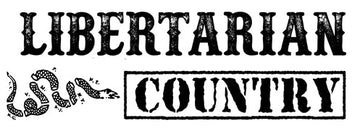Escaping the Chains of Dependency
Every government in history has relied on dependency to control its people. Whether through welfare, taxation, or inflation, the state’s power grows as individuals surrender their self-reliance. True independence—financial independence—is not just a personal goal; it’s an act of rebellion. It’s a rejection of the system that thrives on keeping citizens just comfortable enough to comply, yet too financially constrained to resist.
When you are financially independent, you can say no. No to propaganda. No to coercion. No to policies that rob you in the name of equality. The dependent must bow to the hand that feeds them. The independent builds his own table and invites others to eat freely.
The State’s Favorite Subject: The Economic Slave
Governments and socialist movements share one central objective: control over the means of production—your production. They claim moral authority over your labor and wealth, insisting it’s “for the greater good.” But the greater good never seems to include the individual who earned it.
In reality, socialism and excessive government regulation breed dependency. They punish the producer and reward the consumer, creating a lopsided society where the ambitious are demonized, and the idle are canonized. The bureaucrat needs your reliance as much as the addict needs his drug. Dependency is the leash; taxation is the collar.
When a man becomes financially independent—through saving, investing, entrepreneurship, and voluntary exchange—he breaks that leash. He no longer needs subsidies, entitlements, or central planners dictating his fate. He becomes ungovernable in the most peaceful and moral way imaginable.
Capitalism: The Weapon of the Free
Capitalism is the only system that allows rebellion through creation. Every business started, every product sold, every dollar earned voluntarily is a middle finger to tyranny. In capitalism, success is permissionless. You don’t need a politician’s blessing to innovate or a bureaucrat’s approval to thrive.
Under socialism, equality is enforced at gunpoint. Under capitalism, equality of opportunity is available to anyone willing to risk, fail, and try again. The free market is a living protest—a decentralized uprising against control. When you trade value for value, both parties benefit without coercion. That’s freedom in action.
The self-made individual doesn’t need to march in the streets to change the world. His protest is silent yet thunderous: wealth earned through voluntary exchange. Every dollar he keeps is a vote against the machine.
Freedom Is Incomplete Without Financial Autonomy
You can’t be truly free if your survival depends on others’ permission. Political liberty without economic liberty is an illusion. What good is free speech if your livelihood can be destroyed with a tax increase or a frozen bank account?
Financial independence creates insulation from manipulation. It gives you the power to walk away—from corrupt employers, oppressive policies, and toxic cultural norms. It allows you to support causes you believe in without fear of reprisal. It gives you the time to think, to create, and to live deliberately.
The man who controls his time and resources is beyond the reach of political puppeteers. He doesn’t need their protection or pity. He doesn’t ask for equality—he creates prosperity.
The Revolution of the Self
The greatest revolution isn’t political; it’s personal. You don’t have to storm the Capitol or burn the flag to change the system. You simply have to withdraw your dependency and build your own economy.
Work for yourself. Invest in your mind. Own assets. Learn skills that can’t be censored or taxed away. Build something of value that stands outside the fragile web of state control.
Financial independence isn’t greed—it’s virtue. It’s the pursuit of freedom through productivity. It’s the moral assertion that your life belongs to you, not to the collective.
In a world obsessed with control, the most radical act is to own your time, your labor, and your destiny. That’s the ultimate protest—one the state cannot regulate, confiscate, or silence.



